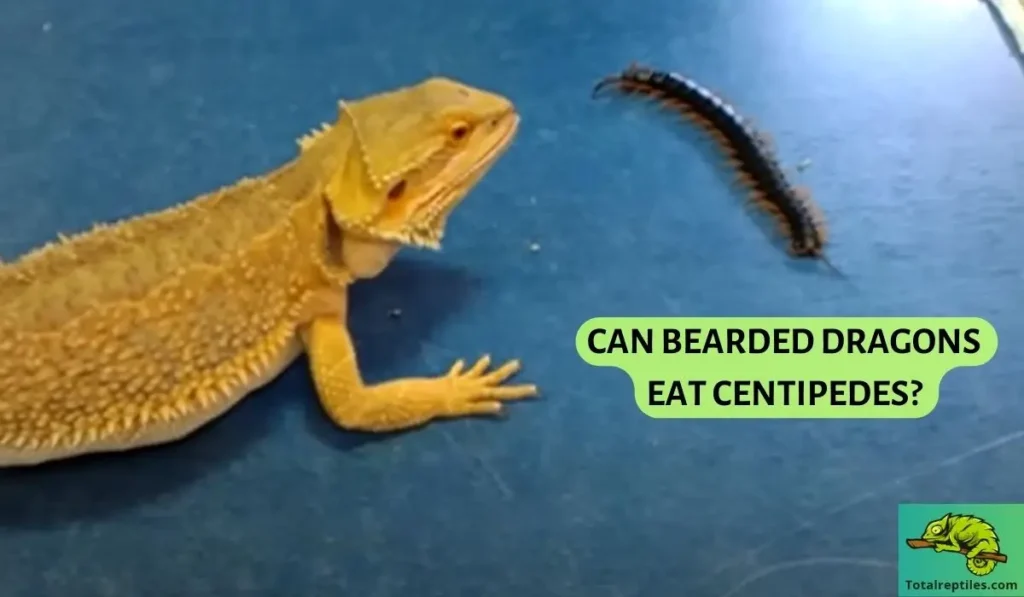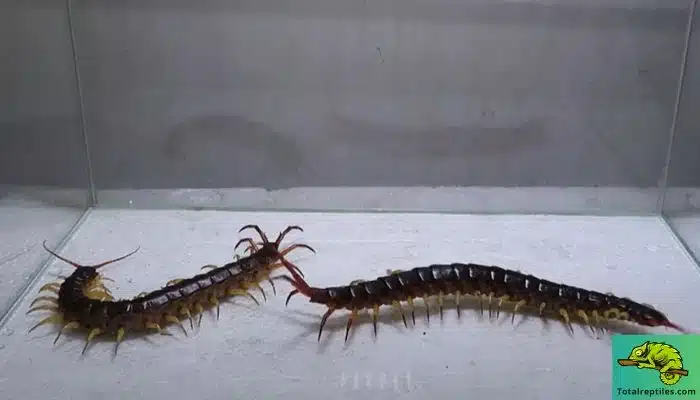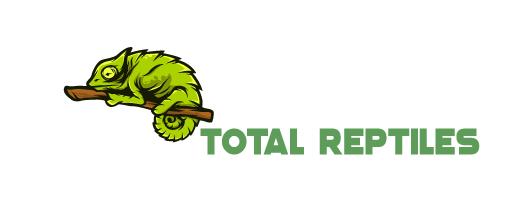Well, the answer is more complex. While centipedes can be considered a part of their diet, it’s crucial to exercise caution.
Certain species of centipedes can be highly toxic to these reptiles, posing a significant risk to their health. To ensure the well-being of your bearded dragon, it is generally best to avoid feeding them centipedes altogether.
The last thing you want is to unknowingly expose your pet to harmful parasites or endanger their lives. So, let’s explore safer alternatives to keep our bearded dragons happy and healthy.
But if you want to give centipedes as food for your bearded lizard, you must adequately monitor and properly prepare this toxic insect for your pets.
As an owner of a bearded dragon, you may be curious about what they can and cannot eat. One question often arises is whether bearded dragons can safely consume centipedes.

Guidelines for Feeding Centipedes to Bearded Dragons
Feeding centipedes to bearded dragons requires careful consideration to ensure the safety of your reptilian companion. Here are important guidelines to keep in mind:
Centipede Selection:
- Certain species of centipedes are toxic to bearded dragons, so it is crucial to identify safe options.
- Stick to commercially bred centipedes or seek advice from a reptile veterinarian to determine suitable species.
Avoid Wild-Caught Centipedes:
- Wild-caught centipedes can carry harmful parasites, making them unsuitable for your bearded dragon’s consumption.
- Never allow your pet to eat any wild animals without proper knowledge of their safety.
Proper Preparation:
- Before offering centipedes, ensure they are appropriately sized for your bearded dragon to prevent choking hazards.
- Remove any venomous appendages or legs to minimize the risk of toxic effects.
Monitor Feeding:
- Start by introducing small portions of centipedes and observe your bearded dragon’s reaction.
- Watch for any signs of adverse reactions, such as vomiting or unusual behavior.

Dietary Variety:
- While centipedes can be included in a varied diet, they should not be the sole food source.
- Ensure your bearded dragon’s diet consists of nutritionally balanced options like insects, leafy greens, and occasional fruits.
Remember, the well-being of your bearded dragon is of utmost importance. Consult a reptile veterinarian for expert guidance based on your pet’s needs if you have questions about feeding centipedes.
READ MORE: can bearded dragons eat spiders?
Examining the Benefits and Nutritional Value of Centipedes
Centipedes may seem like an unusual food choice for bearded dragons, but they can offer certain benefits and nutritional value when included as part of a balanced diet.
Let’s take a closer look at the advantages and the essential nutrients that centipedes provide:
Mimics Natural Prey:
In the wild, bearded dragons naturally consume a variety of insects, including centipedes. Feeding them centipedes replicates their natural feeding behavior, providing a more enriched and fulfilling diet.
Nutritional Variety:
Centipedes add nutritional diversity to the bearded dragon’s diet, offering a range of essential nutrients not found in other food sources.
By incorporating different prey items like centipedes, you can ensure a well-rounded nutritional intake for your reptile companion. Here is a nutritional value chart of Centipedes:
| Nutrient | Amount per 100g |
| Protein | 60g |
| Fat | 10g |
| Fiber | 5g |
| Calcium | 100mg |
| Phosphorus | 200mg |
| Vitamin A | 3000 IU |
| Vitamin B12 | 2.4 mcg |
| Vitamin C | 15mg |
| Iron | 4mg |
| Magnesium | 50mg |
High Protein Content:
Centipedes are rich in protein, which is crucial for the growth, development, and maintenance of muscle tissue in bearded dragons.
The protein content in centipedes helps support healthy bodily functions and contributes to overall strength and vitality.
Calcium and Phosphorus Source:
Centipedes contain significant amounts of calcium and phosphorus, essential minerals for maintaining strong bones and preventing metabolic bone disease in bearded dragons.
Including centipedes in their diet can help supplement these important minerals and promote skeletal health.
Natural Stimulation:
Feeding centipedes can provide mental and physical stimulation for bearded dragons. It engages their natural hunting instincts, promoting active behavior and reducing boredom.
Enrichment and Foraging:
Introducing centipedes as a food source encourages foraging behavior in bearded dragons, stimulating their natural instincts and promoting mental well-being.
Foraging activities help prevent lethargy and encourage exercise, leading to a healthier and more active lifestyle for your pet.
Varied Taste and Texture:
Adding centipedes to the diet offers a change in taste and texture for bearded dragons, preventing monotony and enhancing mealtime interest.
This variety can help stimulate their appetite and encourage consistent feeding habits.
Can Bearded Dragons Eat House Centipedes?
Yes, bearded dragons can eat house centipedes by following the guidelines mentioned above.
conclusion
In summary, whether bearded dragons can eat centipedes has a nuanced answer. Centipedes can be considered part of their diet, but caution is necessary.
Focus on providing a variety of nutritionally balanced foods instead of centipedes. By doing so, you can ensure the well-being and happiness of your beloved bearded dragon.

